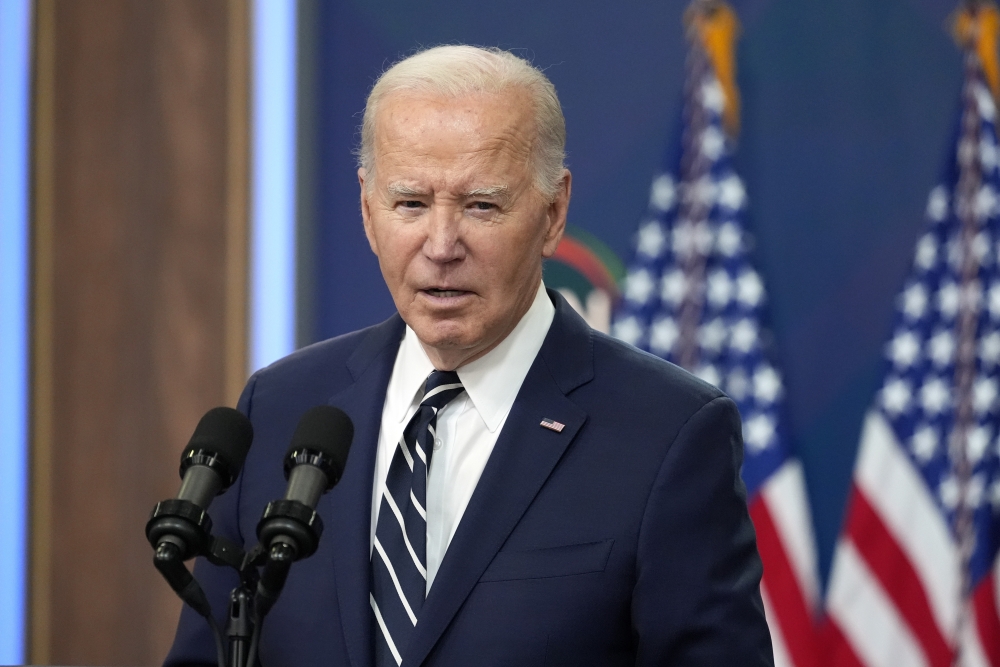President Reagan asked voters in 1984, “Is your life better off than it was four years ago?” The authors of this series show that in this crucial election year, the answer for many aspects of American well-being, from abundant jobs to affordable prescription drugs to lower crime rates, is a resounding “Yes!”
But when we think about the climate crisis, the evidence is clear and frightening. The situation in the world, in the United States, and in Maine is shockingly worse. The effects of “global extreme weather” — scorching heat waves, rising sea levels, ferocious wildfires, and the spread of disease — make news headlines almost daily. In Maine, we're well aware of the frequent occurrence of severe storms that cause flooding, coastal devastation, and widespread power outages. Globally, 2023 was the hottest year on record. So far, 2024 is even hotter.
Climate change is a long-term, ongoing global crisis that no country can stop alone, despite the best intentions and policies. So the question “Is it good for you?” needs to be rephrased: Will our future, and that of our children and grandchildren, be safer and more livable under either presidential candidate?
First, let us recall the attitudes and actions of the former Trump administration: its claim that global warming is a “hoax”; its prioritization of fossil fuel extraction with the “dig, dig, dig” mantra; its withdrawal of emissions limits for coal-fired power plants; and its rejection of the international Paris Agreement on climate change.
President Biden's approach to tackling global warming stands in stark contrast: “Those who willfully deny the impacts of climate change are condemning the American people to a very dangerous future — one in which the impacts we are seeing will get worse, more frequent, more violent and more costly in the future.” [But] None of this is inevitable…. From day one, my administration has taken unprecedented climate action” (Biden, November 14, 2023).
The administration's ambitious goals are to cut carbon emissions by 50% by 2030, accelerate renewable energy generation and transmission, and “decarbonize” key economic sectors. In Maine, that means solar panels, heat pumps, offshore wind, and building with lots of wood. The bipartisan infrastructure bill was a start, and the Inflation Reduction Act of 2022, passed despite Republican opposition, kicked off by America's largest climate investment. IRA incentives have stimulated about $5.50 in private investment for every dollar of federal spending, creating thousands of high-skill jobs in economically distressed areas.
Maine's bold climate action plan benefits Mainers in many ways, including subsidies for heat pumps, electric vehicle charging stations, flood prevention infrastructure and funding to make the grid more resilient. Maine ranked first in the nation for heat pump installations, and the federal government's new $20 billion Clean Energy and Climate Solutions program is targeting $62 million to bring solar power to Maine's sparsely populated rural areas.
Internationally, the United States is reclaiming its leadership role by rejoining the Paris Agreement. At the UN's 2023 Dubai Climate Summit, it pushed for the first-ever declaration that fossil fuels must be phased out and won important commitments to curb potent methane emissions. President Biden has recognized that more “clean development” and reduced climate-driven migration are vital U.S. national interests and is prioritizing support for low-income countries through the Green Climate Fund.
But despite these unprecedented efforts, the U.S. is not on track to meet its goal of halving emissions by 2030. The reasons are varied, and not all of them are political: Global demand for gas and oil has pushed U.S. production to a new peak in 2023. Offshore wind projects are stalling due to rising costs and clogged supply chains. And consumers are less enthusiastic about electric cars than expected.
But many of the obstacles are rooted in political divisions. Modernizing and expanding America's antiquated electric grid is blocked by both Republican and Democratic states, including here in Maine. Congressional obstruction, bolstered by fossil fuel industry lobbying, is also a major obstacle. For example, a price on carbon pollution, which every other industrialized country has, has stalled in Congress. In fact, current law provides $14 billion a year in subsidies to the fossil fuel industry.
As Election Day approaches this fall, issues such as abortion, immigration, Middle East policy and the former president's criminal trial will likely dominate the news.
But nowhere are the stakes higher, or the contrast between the presidential candidates more stark, than on climate strategy. Candidate Trump has rejected America's international climate commitments and vowed to roll back environmental protections. He has offered preferential treatment to the fossil fuel industry in exchange for $1 billion in campaign contributions. President Biden is committed to preserving America's recent progress toward a livable climate.
Increasing warnings of deadly heat waves and devastating storms call for new approaches, not denial or change of course. In November, voters will decide whether America will maintain or roll back progress on climate change.
Copy story link
Related article



Invalid username/password.
Please check your email to confirm and complete your registration.
To reset your password, please use the form below. After submitting your account email address, you will receive an email with a reset code.